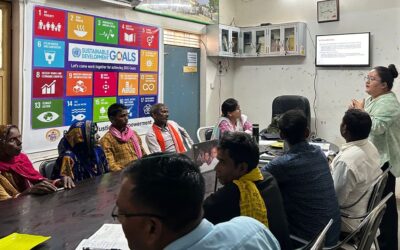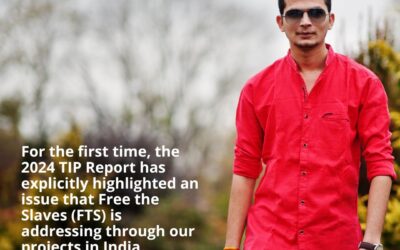Free the Slaves south Asia Director Supriya Awasthi sees herself as a connector. She builds bridges between slavery survivors and those still in bondage.
“I always wanted to do something like this, because I could see something changing in front of me,” she says. Once villagers are free, Supriya says “they also dream about others.”
“The people who are in slavery and those who have been freed, they connect. And the movement becomes contagious,” she says.
You can see Supriya share her thoughts about spreading freedom in the latest video in our Face to Face with Slavery film series. It’s called On the Front Lines in India.
Supriya knows a thing or two about freeing slaves! She has been with Free the Slaves since the early days of the organization in the early 2000s. You can see by the way she speaks with villagers that helping people break free is joyous work.
On the Front Lines in India also features Rajneesh Yadav of our partner organization MSEMVS.
“Our immediate goal is to establish a society that is based on equality and justice, he says. “MSEMVS believes in rescue, rehabilitation, and reintegration—along with prevention, prosecution and conviction of slave holders and traffickers.”
Learn more about Free the Slaves in India, and see an actual rescue caught on camera, on our India webpage.
See other videos from our Face to Face with Slavery series on our video webpage.



